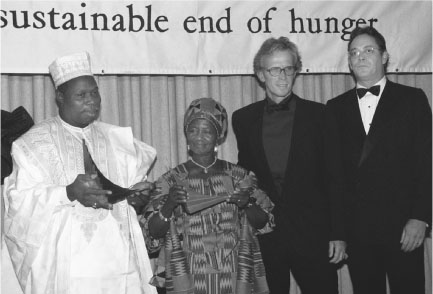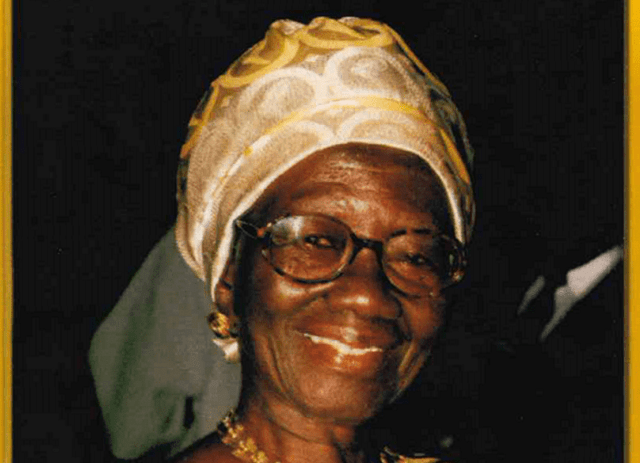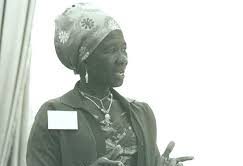Esther Afua Ocloo was a Ghanaian entrepreneur—the first woman to popularize the micro-lending scheme to empower other women. She was born on April 18, 1919 in Peki-Dzake, Gold Coast, which is now in Ghana, and died on February 8, 2002 in Ghana.
Born as Esther Afua Nkulenu and commonly known as ‘Auntie Ocloo’, Esther dedicated her life to being a groundbreaking businesswoman. She co-founded Women’s World Banking in 1979 and fulfilled the role of the head of the organization.
Her goal was to help women from an underprivileged background to be financially independent. Hence, she pioneered the practice of microlending to businesses run by women, which were often home-based. The micro-loan would sometimes be as small as $50.
This brave woman fought for women’s empowerment a hundred years ago, and her achievement helped a lot of women along the way. Did you know about Esther and her humble beginnings? Read on to find out about five facts about the life and philosophy of Ocloo.

1. Ocloo Had an Entrepreneurial Spirit from Her Childhood
Esther Afua Ocloo had the fortune to attend one of the most prestigious schools in Ghana all thanks to her aunt. In Achimota boarding school, Ocloo had trouble fitting in as her parents were not as rich as her classmates’ parents. Her blacksmith father and her potter mother could not afford that kind of education. The conviction she had for entrepreneurship manifested itself from a very early point in Ocloo’s life.
When Ocloo graduated from high school, she was gifted ten shillings from her aunt. In today’s world, that’d be about a dollar. Ocloo did not spend it right away to reward herself. She used the money to buy the ingredients necessary for a dozen jars of marmalade like sugar, oranges etc. She wanted to make some marmalade that could be sold for a profit.
Later in an interview, Ocloo said, “I was determined to turn that ten shillings into two pounds at least. With six shillings, I bought the ingredients to make marmalade and went to the street side to sell the jars of marmalade. Within an hour, I had sold all my jars and turned six shillings into twelve! I was so excited, I treated myself to a delicious lunch.”
2. Ocloo Had Teachers Who Believed in Her
In the early 1940s, Ocloo felt that Ghana was taking the values of its colonizer, Britain. It was a difficult experience for her as she was trying to pursue an honest venture by selling marmalade on the streets. She was constantly ridiculed by her classmates.
Blue-collar jobs are not given any respect by the Ghanian people, and the bright ones would only seek managerial positions. When she was seen on the streets selling marmalades by her classmates, they did not want to associate themselves with her.
But ironically, the teachers of her alma mater, who were mostly Europeans, encouraged her to follow her dreams. She wanted to get out of the practice of mimicking the colonizers that the Ghanians had taken on.
Ocloo’s teachers went a step further to help her fulfill her dreams by becoming her regular client. They asked her to supply the school with her marmalade two times a week because they were very impressed with the quality as well as her conviction.
The success of her business further motivated the reservation of a percentage of the profits for further training in Europe. Her teachers were convinced she would go for further training later, which she did.
Ocloo settled another contract with the military, and between that and this contract, she established her own business known as Nkulenu Industries-official. They are still running a very successful business, making jams and other export-quality food items.

3. Ocloo Graduated From the Good Housekeeping Institute in London as the First Ever Black Person
Ocloo’s alma mater not only encouraged her to pursue the dream of her own business and help in the process, but they also helped further her education. Between 1949 and 1951, Ocloo received fundings from her school for her trip to England, where she received post-graduate training from the Good Housekeeping Institute in London.
She was the first black person ever to receive a cooking diploma in 1951 from this institute. She went on to Bristol University to study food science, preservation, and nutrition.
4. She was Extremely Devoted to Helping Other Women in Need
Ocloo decided ahead of time that she would put all that knowledge and education to good use after returning to Ghana. She found herself very aligned with the cause of other women from her country and neighborhood and was determined to help them become self-sufficient.
She established a farm-based program, the goal of which was to teach women about craft-making, food production, and agriculture.
Ocloo found that women who were independent were much more well-off than the women who were in the white-collar industry. Simple business ideas like selling rice and stew by the side of the road were much more profitable than working at an office, but unfortunately, those women were never taken seriously.
Ocloo’s desire to focus on empowering women came from her experience with an underprivileged background. In an interview, she said that she wanted the other women not to suffer the austerity she’s seen all around her growing up.
To make women’s contributions socially, economically, and culturally valuable, they had to be independent. They are the economic backbone of the country, producing over eighty percent of the food. As such, they should be given proper respect.
She founded/helped to found eight non-profit organizations in her lifetime. She founded the Sustainable End of Hunger Foundation and Women’s World Banking. This organization now works in two dozen countries, providing women who are not eligible for loans from the traditional banking system with microloans.

5. Ocloo Was the First Woman Ever to Receive the Africa Prize for Leadership
An award was given by The Hunger Project to “outstanding leaders from every level and every sector of society.” was won by Esther. This award is presented to leaders who have impacted over ten million lives and promises a new beginning for them. Ocloo had invested most of the money won from this award to expand her efforts to help other women.
When Ocloo passed away in 2002, the New York Times reported a response she had when her children were not too happy about her helping the competitors: “My main goal is to help my fellow women. If they make better marmalade than me, I deserve the competition.”


